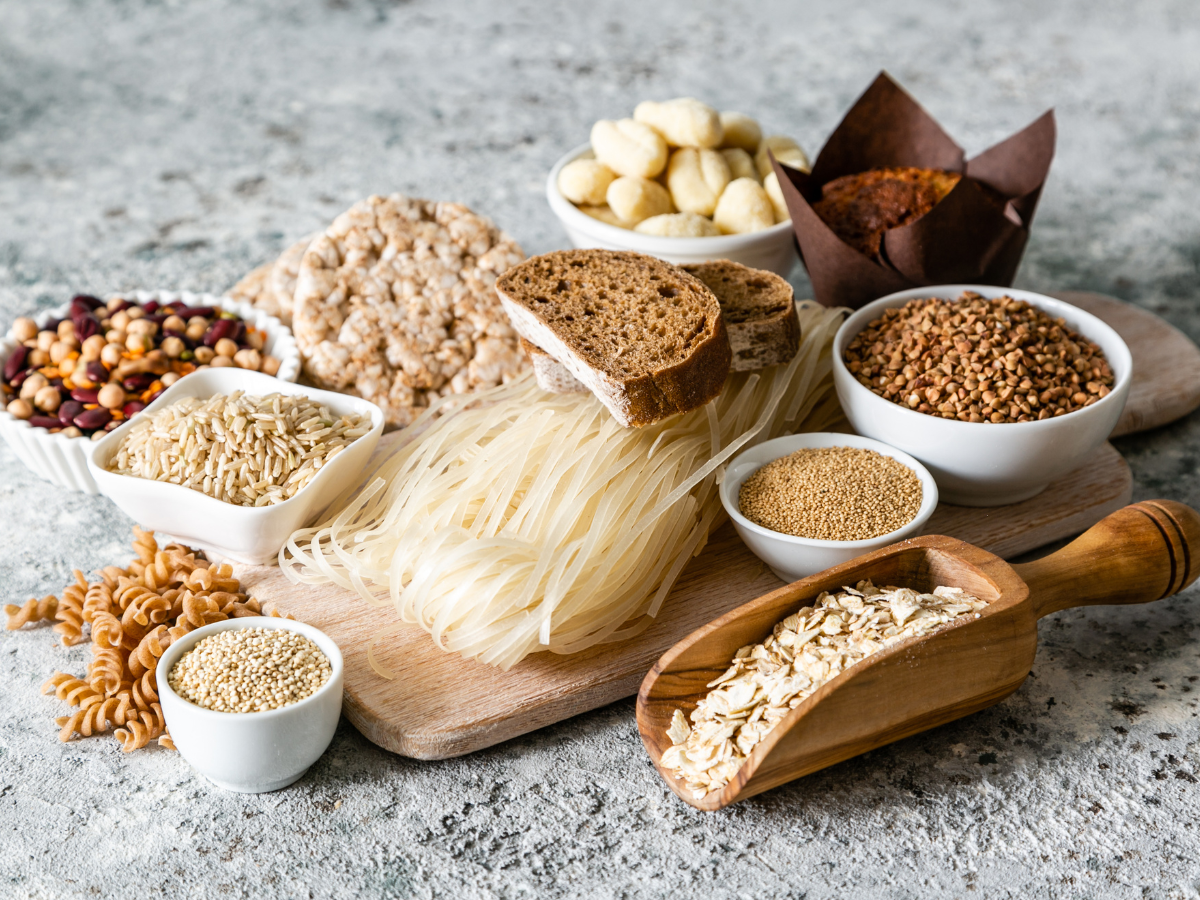- Milk Chocolate
- What is Milk Chocolate?
- What is Milk Chocolate Made of?
- Milk Chocolate Tastes & Flavours
- Milk Chocolate Benefits
- Dark Chocolate
- What is Dark Chocolate?
- What is Dark Chocolate Made of?
- Dark Chocolate Tastes & Flavours
- Dark Chocolate Benefits
- White Chocolate
- What is White Chocolate?
- What is White Chocolate Made of?
- White Chocolate Tastes & Flavours
- White Chocolate Benefits
- Which Chocolate Is Healthier?
- Which Chocolate is Best for a Caffeine Sensitivity?
- Which Chocolate Is More Popular?
- Which Chocolate is Best for a Dairy Intolerance?
- Which Chocolate is Best For A Nut Allergy?
- Final Thoughts
For many of us, choosing between milk, dark, and white chocolate is a tough decision. Each chocolate type has a unique taste, and also a set of advantages!
It’s pretty difficult to find someone who doesn’t enjoy some form of chocolate. Whether you’re an avid chocolate lover who eats anything from chocolate cake to chocolate spread, or you prefer a specific brand, there’s a high likelihood that you enjoy some type of chocolate. Chocolate is also unusual in that many people love it regardless of the type, while others are die-hard fans of a particular kind, insisting that their favourite is the best.
While we all have our preferences in terms of taste, there are also more scientific ways to differentiate between the different types of chocolate. While milk, dark, and white all have their benefits, some are better for certain aspects than others.
In this blog post, we’ll explore the key differences between milk, dark, and white chocolate, along with their distinct flavours, ingredients, and even some potential health benefits. Whether you’re a lifelong chocolate lover or just want to explore new flavours, this guide will help you make an informed choice for your next chocolate craving.
Milk Chocolate
What is Milk Chocolate?
Milk chocolate is a form of solid chocolate that contains cocoa, sugar, and milk. It’s one of the most popular and widely-consumed types of chocolate worldwide. Aesthetically, milk chocolate is a light brown colour, sitting in the middle of the spectrum between the lighter and darker shades of the other two types.
The main components that distinguish milk chocolate from other types are its lower cocoa content and the addition of milk. Typically, milk chocolate contains between 10% and 40% cocoa solids, making it less intense and more mellow compared to dark chocolate.
What is Milk Chocolate Made of?
The ingredients of milk chocolate generally include milk powder, cocoa butter, cocoa mass, soy lecithin, sugar, and vanilla.
Milk Chocolate Tastes & Flavours
Milk chocolate is a favourite among chocolate enthusiasts due to its smooth, creamy texture and sweetness (with vanilla undertones). It also comes in a variety of flavours, with some of the most popular being caramel, peanut butter, and fruit and nut combinations.
Milk Chocolate Benefits
When considering the health benefits of milk chocolate, much has been said about its high levels of fat and sugar. However, this type of chocolate still offers some important nutrients. Given that it’s made with milk, it’s unsurprising to learn that milk chocolate contains a good amount of calcium, which can help improve bone health. You will also find small amounts of iron, potassium, zinc, and vitamins A and K within it.
Other benefits of milk chocolate include its ability to boost mood (thanks to its caffeine, theobromine, and sugar content), and to increase energy levels due to the carbohydrates it contains, which can provide a quick energy boost.
It’s also worth noting that (due to the inclusion of cocoa powder) milk chocolate contains antioxidants that help to protect the body from damage caused by free radicals and other harmful substances.
Dark Chocolate
What is Dark Chocolate?
Dark chocolate is a form of chocolate that contains a high percentage of cocoa and cocoa butter and usually has no milk in it whatsoever. In appearance, it is the darkest of the three, being either a dark brown or black colour.
What is Dark Chocolate Made of?
The main ingredients of dark chocolate include cocoa solids, cocoa butter, and sugar. Typically, dark chocolate is 50–90% cocoa solids. While it does contain sugar, the levels are significantly lower than in milk or white chocolate.
Dark Chocolate Tastes & Flavours
Dark chocolate is renowned for its rich, complex flavour profile that offers a more intense chocolate experience. The exact flavours can depend largely on the specific bar and the amount of cocoa content, but most chocolate lovers agree that dark chocolate is usually more bitter with an overall richer flavour.
Dark Chocolate Benefits
Dark chocolate has some distinct health benefits. While these benefits overlap with those of the other two types of chocolate (particularly the potential to improve heart health and mood) some of the most widely recognised benefits include high levels of antioxidants, the ability to improve brain function, improved gut health by increasing the diversity of gut microbiomes, and boosting the immune system by reducing oxidative stress and preventing overreaction.
White Chocolate
What is White Chocolate?
White chocolate is a creamy and sweet type of chocolate that is distinctly different from both milk and dark chocolate in terms of ingredients, flavour, and appearance. Unlike milk or dark chocolate, white chocolate does not contain cocoa solids: the part of the cocoa bean that gives chocolate its brown colour and characteristic cocoa flavour. Instead, white chocolate is made from cocoa butter, which is the fat extracted from cocoa beans, combined with sugar, milk solids, and sometimes vanilla and other flavourings. Unsurprisingly, white chocolate is the lightest in colour, typically being a pale ivory shade.
What is White Chocolate Made of?
The main ingredients of white chocolate are milk powder or milk solids, cocoa butter, sugar, and sometimes vanilla and lecithin.
White Chocolate Tastes & Flavours
Authentic white chocolate offers a sweet, buttery taste with subtle notes of vanilla and fresh milk. Its texture is smooth and it melts easily in your mouth, even when the chocolate is still solid. Some varieties also feature delicate floral hints, as well as traces of honey and sweet cream.
White Chocolate Benefits
White chocolate’s higher percentage of milk solids makes it particularly rich in calcium. Other notable benefits include its ability to boost mood due to its sugar content. Additionally, white chocolate is caffeine-free, making it a suitable choice for those with caffeine sensitivity or for those who wish to cut caffeine from their diet.
Which Chocolate Is Healthier?
Technically speaking, calling chocolate ‘healthy’ might be a bit misleading! After all, while it can be part of a balanced diet, chocolate is not usually considered to be a healthy food. However, some types of chocolate are healthier than others. According to most dietitians, dark chocolate is the healthiest option by some margin. The darker the chocolate, the healthier it generally is, primarily because it contains less sugar, more cocoa, and higher levels of substances that protect the body’s cells.
Which Chocolate is Best for a Caffeine Sensitivity?
If you have a caffeine sensitivity then white chocolate is the ideal choice. White chocolate contains 0 mg of caffeine, making it safe to consume before bedtime. Do keep in mind though that while dark chocolate technically has the most caffeine, it still contains significantly less than a standard cup of coffee.
Which Chocolate Is More Popular?
While popularity does not necessarily reflect quality, it is worth noting that milk chocolate is by far the most popular type of chocolate in the UK.
In 2022 statistics, it was evident that 67% of consumers in the United Kingdom chose milk chocolate, 22% opted for dark chocolate, and just 11% preferred white chocolate. Various theories have been suggested to explain milk chocolate’s popularity, but it looks as though many consumers favour its sweet and creamy taste.
Which Chocolate is Best for a Dairy Intolerance?
If you have a dairy intolerance and still want to enjoy the delicious taste of chocolate, then dark chocolate may be the best and most viable option. This is because dark chocolate (especially the kinds with high cocoa content) is typically dairy-free. However, it’s still essential to check the ingredients list, as some brands may add milk or milk derivatives for additional flavour or texture.
If you want to be completely certain that your chocolate is dairy-free, then many popular chocolate manufacturers offer dairy-free alternatives, and they are advertised as such. As with any intolerance or allergy, it’s always important to check the label before consuming or buying the product.
Which Chocolate is Best For A Nut Allergy?
For individuals with nut intolerances and allergies, choosing the right chocolate is essential to avoid the risk of a severe reaction. However, whether chocolate is nut or peanut-free does not completely depend on the type of chocolate, but rather on the manufacturing process.
That said, dark chocolate is often considered to be the safest option for those with nut allergies because it typically has fewer ingredients, reducing the risk of hidden allergens. Milk chocolate can be safe for nut allergy sufferers if it is explicitly labelled as nut-free and is produced in a nut-free facility. White chocolate is the least likely of the three to be nut-free, as it often includes additional ingredients. Once again, it’s always important to check the label to ensure that the chocolate is nut-free.
Final Thoughts
Ultimately, choosing between milk, dark, and white chocolate often comes down to personal taste preferences and dietary requirements.
That said, we hope that this guide has given you more insight into the differences between each type of chocolate, along with their potential benefits and drawbacks. And if you’re starting to wonder if you may have one of the intolerances or allergies mentioned in this blog, then why not take one of our tests? At YorkTest, we want you to lead a healthy and stress-free life, and understanding your dietary limitations is the key to achieving this. If you would like to order one of our Food Intolerance or Food Allergy test kits, then please don’t hesitate to contact us today.













